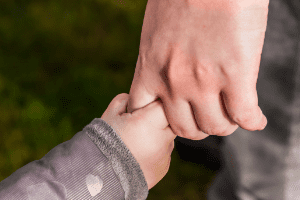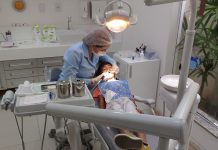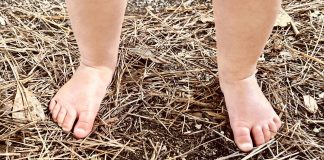 The plus sign or double pink lines on pregnancy tests should really be accompanied by a little note that reads, “Welcome to parenthood – the world of worry.” Because that’s when it all starts . . .
The plus sign or double pink lines on pregnancy tests should really be accompanied by a little note that reads, “Welcome to parenthood – the world of worry.” Because that’s when it all starts . . .
While pregnant, you worry about the health and safety of your baby. You hold your breath while the ultrasound tech checks the strength of heart valves, counts ten tiny toes, and takes your sweet one’s measurements. You get butterflies as the doctor spends those first few seconds scanning the chart to check on the baby’s progress. But at that time, your worry appears to have an end point – birth.
You think, “Once my little one is in my arms and I can see him or her, those eyes, that mouth, and those little fingers wrapped around my thumb, everything will be all right – I won’t have to worry anymore.”
But then you learn that worrying about your child’s well-being doesn’t end at birth. It begins.
Unfortunately, sleepless nights don’t end when you’re out of the newborn phase. There’s just a different reason for them. What starts as worrying about feedings with a newborn changes to worrying about classmates in elementary school, which morphs into worrying about your teen texting while driving despite the million times you’ve told him or her not to. Worrying about the little ones we love is just part of parenting.
One worry many parents have as their little ones attend daycare or school, or are left with babysitters, is body safety and abuse. Unfortunately, there’s good reason to worry. The state of Alabama is in line with national statistics, which show that one in every 10 children will experience some form of sexual abuse before turning 18. That stat is staggering. But here’s the good news — we can do something. We can educate them and empower them.
 Make Body Safety Another Part of Your Family’s Safety Plan
Make Body Safety Another Part of Your Family’s Safety Plan
Many parents avoid talking to their child about body safety and sexual abuse. And that’s understandable; it can be a scary topic for both adults and children. However, Debra Schneider, licensed independent clinical social worker and Executive Director of the Children’s Hospital Intervention and Prevention Services (CHIPS Center) at Children’s of Alabama says creating a safety plan for potential abuse is key and encourages parents to think of it much like any other safety plan at school or at home.
At home, we discuss the importance of wearing helmets, the importance of looking both ways before crossing the street, and we create a plan of escape should there be a fire. At school, children routinely participate in fire, tornado, and active shooter drills. Educators and safety professionals agree — these conversations and drills are key. They may seem scary at first, but they prepare and empower children. Equipping children with a plan takes away much of the scariness of these situations. Body safety and abuse prevention is no different.
Ms. Schneider encourages parents to include a plan of action in the conversation with children about body safety so the child knows what to do should he or she feel uncomfortable or as if someone is being inappropriate. Educating your child about body safety and empowering him or her with a plan goes a long way toward preventing potential abuse. Below are Ms. Schneider’s key recommendations when it comes to creating your family’s plan.
 Key components to include in your plan of action
Key components to include in your plan of action
For children ages three and up, the plan of action should include: (1) trying to say no, (2) trying to get away from the situation, and (3) finding their power to talk to those you have identified as trusted adults. Give your child a list of three trusted adults – two within the family and one outside of the family.
In addition, talk to older children about the fact that as an older sibling, friend, and/or babysitter, they may be someone’s trusted adult. Discuss what to do if a child comes to them with these concerns.
Practice
During your discussion, let your child practice saying, “No” and “Stop” like they mean it. Give your child the freedom to make decisions about his or her body. Let the child know that it’s okay to say no if he or she does not want to give a hug or kiss goodbye. Suggest a high-five instead.
Give your child the words to say and have him or her practice telling you about something that made them feel uncomfortable. This also gives us as parents the opportunity to show our child that we will listen to their concerns, which makes it easier for the child to report suspected abuse.
Taking advantage of teachable moments
The conversation about body safety is not a “one and done” conversation. Just like the routine safety drills at school, take advantage of songs you may be listening to in the car, Amber Alerts, or news headlines to remind your child about how to deal with and report potential abuse.
Discussing potential sexual abuse with children is tough. But including body safety in your family’s safety plan equips your child with what he or she needs to help prevent and report potential abuse.
Looking for more on how to talk to your child about sexual abuse, including teaching the correct names of body parts and establishing boundaries? Check out this post.











